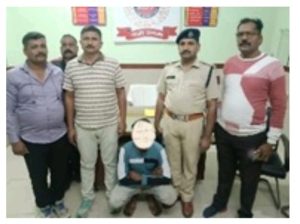Ashish Shelar Takes the Stage: Mumbai BJP President Backs Maratha Reservation, Urges Respectful Dialogue

Mumbai, 14th December 2023: On Wednesday, Ashish Shelar, the city BJP president and MLA, addressed the assembly regarding the Maratha reservation issue, expressing support for Manoj Jarange Patil’s position on behalf of the Maratha community. Shelar emphasized the importance of treating the stance with respect and refraining from mockery.
He underscored the need for the Marathas to receive a fair, legal, and sustainable reservation without compromising the reservations of other communities. Shelar voiced his endorsement of Jarange Patil’s standpoint on the matter.
Shelar also highlighted the necessity for clarity in the issuance of Kunbi certificates. He suggested that individuals with records identifying them as Kunbi should be granted Kunbi certificates, acknowledging the potential legal challenges that may arise. He pointed out that a significant percentage of the economically weaker sections’ reservation, allocated by the central government, benefits Maratha youth for education and employment.
In advocating for the Maratha community, Shelar proposed exploring the possibility of providing permanent reservations to this group and extending 10 per cent reservation to economically weaker sections, mirroring the central government’s approach.
Referencing the Rohini Commission report, which recommends categorizing OBC beneficiaries into groups A, B, C, and D, Shelar expressed uncertainty about the benefits for individuals holding Kunbi certificates based on older records. He raised questions about the potential conflicting implications for those seeking other backward reservations and the economically weaker sections.
Shelar called for clarity on whether combining the central and state government’s 10 per cent reservations would result in a total benefit of 20 per cent for Maratha youth, surpassing the current range of 16.5 to 18 per cent.
In his address, Shelar provided a comprehensive overview of the Maratha community’s historical struggle for reservation since 1980. He questioned why leaders from the Maratha community, who served as chief ministers between 1978 and 2014, were unable to substantiate the community’s backwardness.
Highlighting socio-economic statistics, Shelar noted that a significant percentage of Maratha families have yellow and orange ration cards, with a substantial portion below the poverty line. He presented data on vehicle ownership, landholding, and housing conditions within the Maratha community, emphasizing the need for reservation based on these socio-economic indicators.





